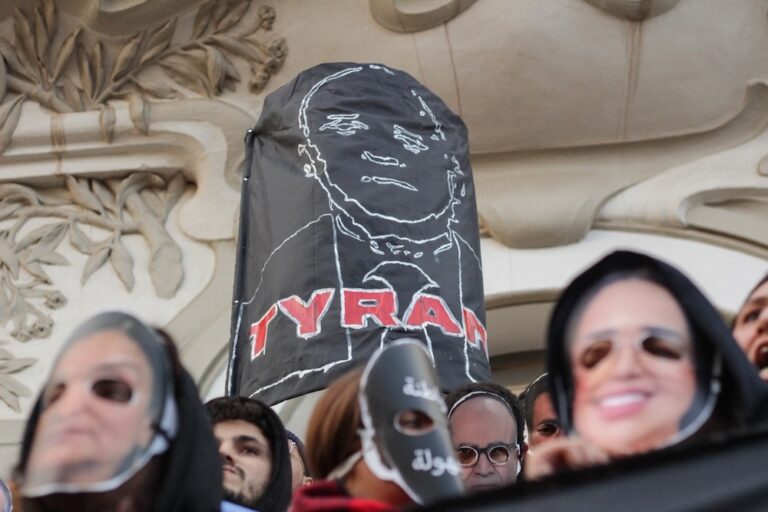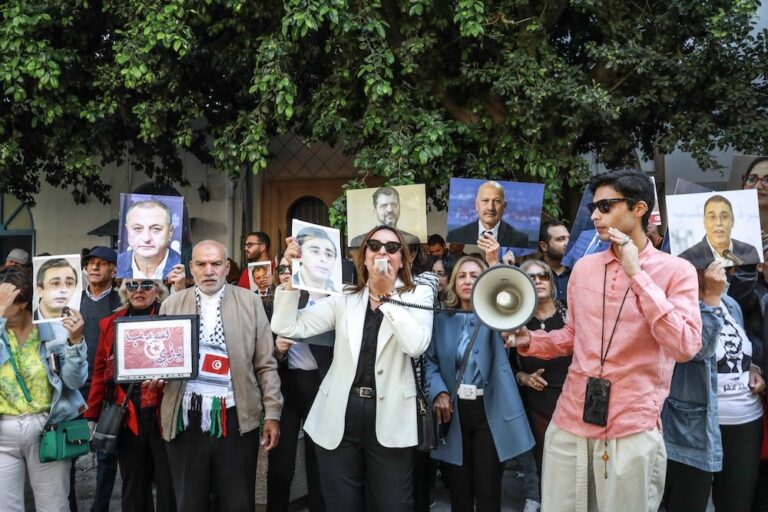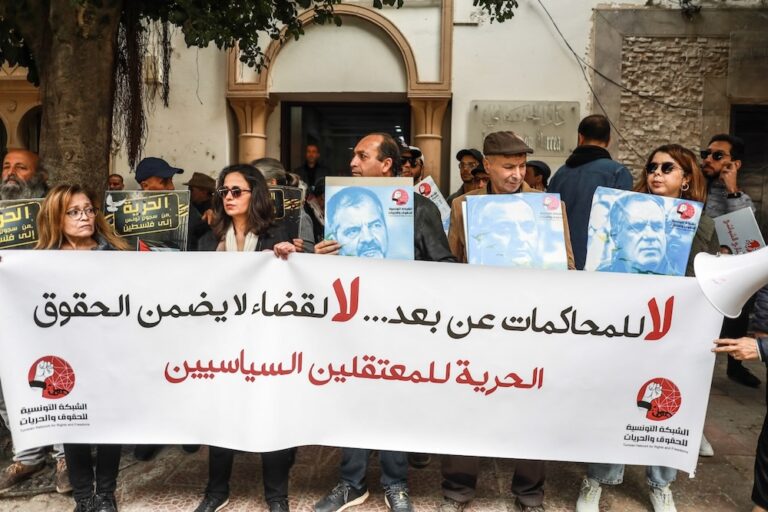(RSF/IFEX) – RSF has protested the 4 June 2002 arrest of Zouhair Yahyaoui, founder and editor of the online newspaper “TUNeZINE”, and the government’s suppression of the newspaper’s website. “Barely two weeks after the referendum on the constitution, whose proposed amendment would supposedly boost human rights in Tunisia, President Zine el-Abidine Ben Ali has shown […]
(RSF/IFEX) – RSF has protested the 4 June 2002 arrest of Zouhair Yahyaoui, founder and editor of the online newspaper “TUNeZINE”, and the government’s suppression of the newspaper’s website.
“Barely two weeks after the referendum on the constitution, whose proposed amendment would supposedly boost human rights in Tunisia, President Zine el-Abidine Ben Ali has shown the true nature of his regime as a police state that stifles all dissenting opinion,” said RSF Secretary-General Robert Ménard in a letter to Interior Minister Hedi M’Henni. “We demand the immediate release of Yahyaoui and the reappearance of ‘TUNeZINE.com’,” he added.
Yahyaoui was arrested at a Tunis cybercafé, where he was working, by six plainclothes police officers who showed no credentials and gave no reason for his arrest. The police officers escorted him to his home, searched his bedroom and seized his computer equipment.
Yahyaoui, who uses the pseudonym “Ettounsi” (“The Tunisian”), set up the website in July 2001 in order to circulate news about the fight for democracy and freedom in Tunisia. He published opposition material online and was one of the first people to circulate a letter from Judge Makhar Yahyaoui (his uncle) to President Ben Ali in which the judge criticised the country’s legal system.
During the 26 May referendum on the constitution, “TUNeZINE” staged its own online referendum, asking readers if they thought Tunisia was “a republic, a kingdom, a zoo or a prison?” From 26 to 28 May, the newspaper held a forum on the government’s referendum and the state of the country’s opposition which drew a very large number of participants.
The website has been censored by the authorities since it was launched. However, each week a list of “proxy” addresses has been available, enabling Tunisians to access the website. The website vanished from the Internet a few hours after Yahyaoui’s arrest, reportedly because police forced him to reveal the access code. The authorities have not given his family or lawyers information about his whereabouts and claim to have no trace of the journalist.
RSF notes that over the past six months, one journalist has been jailed, two others have been physically attacked, two publications have been seized and two others have been suspended in Tunisia.


